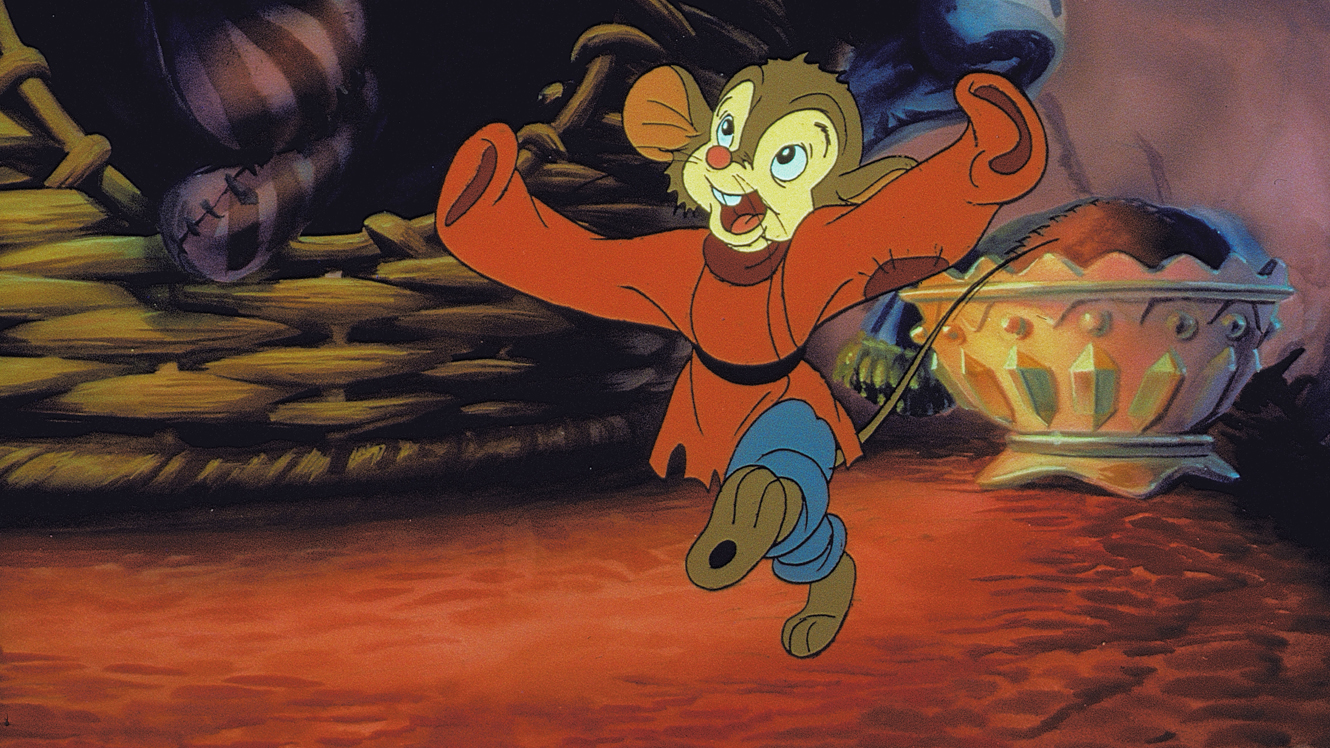Thirty years ago, An American Tail hit the big screen. The animated movie/musical tells the story of Fievel Mousekewitz, a precocious rodent with an oversized newsboy cap who, along with his family, flees oppressive late-1800s Russia to seek freedom in the United States. Separated from his family during a treacherous sea voyage, Fievel is forced to navigate the New World on his own in the hope of reuniting with his father, mother and siblings.
An American Tail was the first time I can recall being exposed to the notion of anti-Semitism. The metaphor that underpins the film – the mice represent the Jewish People, the brutal cats are stand-ins for anti-Semites – is simple enough to parse, that long before I was old enough to begin to comprehend the history of anti-Semitism, let alone the Holocaust, An American Tail taught me there were people in the world who hated people like me because we were Jewish. (The late film critic Roger Ebert’s primary criticism of An American Tail – that it “has such vague ethnic grounds… that only a few children will understand or care that the Mousekewitzes are Jewish” – belies my experience, and, I suspect, that of many more Jewish children of a certain era who were shown the film by our day school teachers.)
The central conceit of An American Tail is that “there are no cats in America.” Fievel’s father first voices the refrain in the wake of a pogrom that convinces him to leave Russia; it makes a second appearance in musical form later on, as the collected mice sing their way across the sea.
But Papa Mousekewitz’s prophecy ultimately proves to be entirely false – there are indeed cats in America, and they harbour the same hatred as their Old World kin. Even as Fievel is reunited with his family at the end of An American Tail, the film’s message is that there is no escaping anti-Semitism.
READ: HATE IS NEVER RIGHT, AND LOVE IS NEVER WRONG
It’s a lesson that resonates especially these days. In the United Kingdom last week, two Labour Party parliamentarians made news for their hateful rhetoric and inaccurate statements about Jews. It started when online comments by Naz Shah, a Labour member of Parliament, were unearthed. In 2014, she shared a Facebook post titled “Solution for Israel-Palestine Conflict – Relocate Israel into United States,” which claimed that relocating Israel would end “foreign interference” in the Middle East, and leave “the whole world happy.” Two days later, Ken Livingstone, the former mayor of London and a current Labour MP, was suspended after telling the BBC, “When Hitler won his election in 1932, his policy then was that Jews should be moved to Israel. He was supporting Zionism before he went mad and ended up killing six million Jews.”
Meanwhile, back in America, Republican presidential hopeful Donald Trump was pushing his “America First” vision, repurposing a phrase (knowingly or unknowingly – with Trump you’re never quite sure) popularized by the anti-Semite and Nazi-sympathizer Charles Lindbergh in the early years of World War II.
As Fievel Mousekewitz learned in An American Tail, even in the glorified utopia of the West the cats still chase the mice. Some things, it seems, never change.
